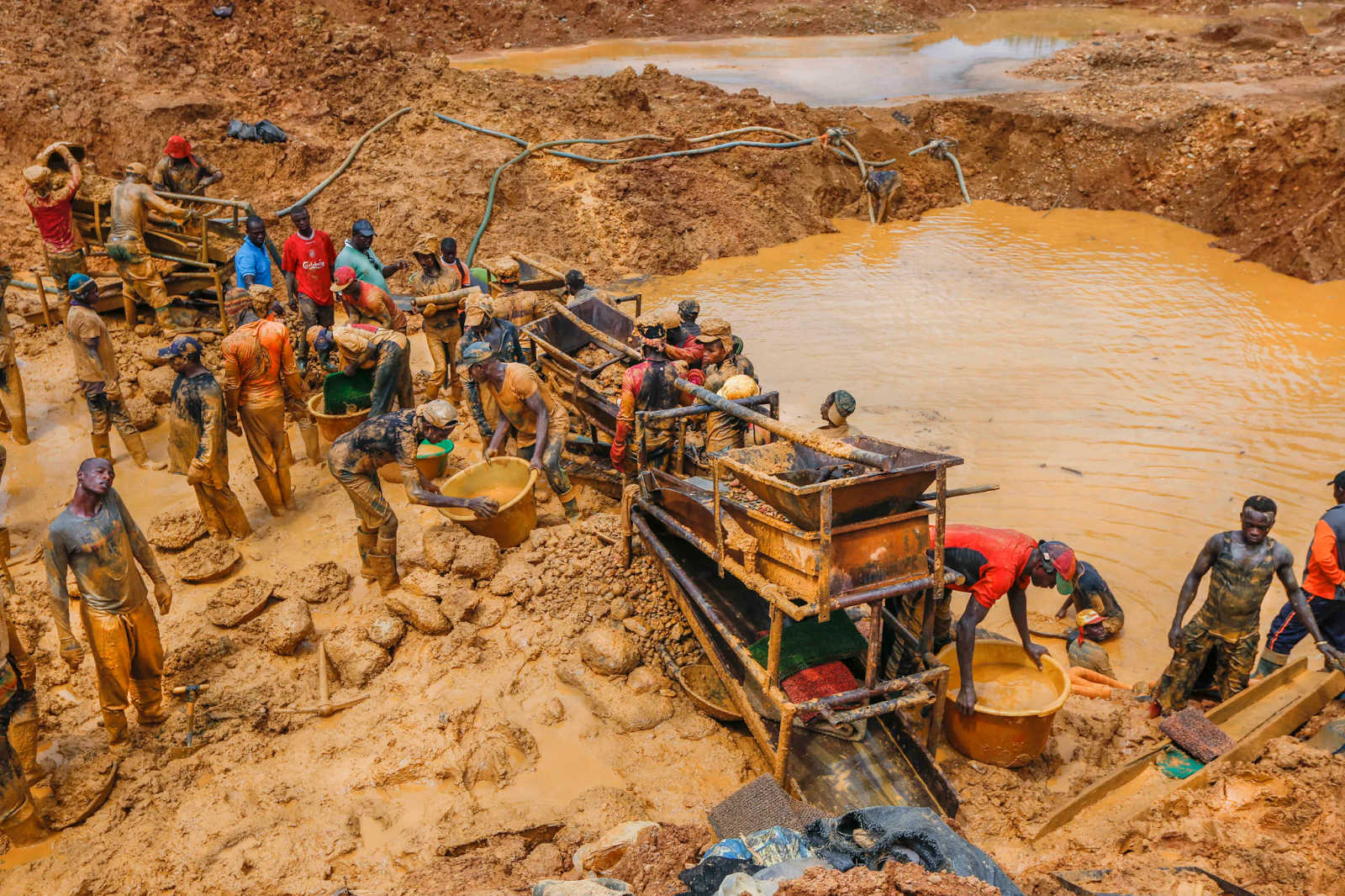How Illegal Gold Mining in Ghana is Leading to Environmental Concerns
Illegal gold-mining site in Ghana (Photo: NY Post)
Throughout October 2024, protests against “galamsey,” a local term referring to the illegal mining of gold, swarmed Accra, Ghana’s capital. On Oct. 11, hundreds marched to protest the practice. Gold is Ghana’s second-greatest export. On a global scale, they are the sixth-largest gold exporter and the second-greatest cocoa exporter. Thus, the economy relies heavily on these commodities.
Over the past decade, illegal gold mining has doubled as a result of the rising gold prices. Yet, it is estimated that less than 30% of the small-scale mines that Ghana relies on for gold mining are legally registered. The rest are illegal gold mines practicing galamsey. The motivation to become involved in the industry is high, as illegal gold mining is “the largest source of jobs in rural Africa, save for farming so that a sustained boom could mean higher incomes for some very poor people.”
Yet the dangers may outweigh the benefits. While galamsey historically was practiced sustainably, with individual men digging with picks and shovels sorting through dirt with sieves, the industry has grown considerably since then. Now, as a result of the new African Gold Rush, Chinese investors have industrialized the sector, providing usage of bulldozers, excavators, and chemical means of extracting gold.
With this industrialization of the illegal gold-mining industry comes the reason for the widespread protests: environmental disaster. According to Ghana’s Water Resources Commission, 60% of Ghana’s water has been contaminated with mercury and other heavy metals, making the water unfit for drinking, even with filtration processes. Illegal gold mining often takes place near water sources, as this is where gold is concentrated. However, this leads to an increase in water damage. Protesters held up bottles of brown murky water in early October to symbolize this issue. WaterAid, a nonprofit organization focused on clean water projects, has stated that if large-scale illegal mining operations continue, Ghana may be forced to import water by 2030, even though the nation has an abundance of rivers, lakes, and groundwater systems. The issue has been deemed an “ecocide.” In October, the Ghana Water Company had to reduce its clean water supply by 75% as a result of polluted water systems.
The impact of illegal gold mining stretches beyond water systems, impacting Ghana’s cocoa-exporting sector as well. Historically, there has been a balance between the cocoa-farming and gold-mining sectors. But with the boom of illegal gold mining, and the fact that cocoa supportive soil is also rich in gold, this coexistence is ceasing. In fact, the cocoa sector is being hurt, although it makes up the third largest export for Ghana; now, cocoa farms are being bought and turned into illegal mining sites. 11,678 acres of land, including 34 of Ghana’s 388 forest reserves, have been destroyed due to illegal mining projects. The land becomes virtually unusable following the mining production due to the use of harmful chemicals.
Ghanaians gather to protest Galamsey and call for government action in the nation’s capital Accra, Ghana. (Photo: Nipah Dennis/ NBC News)
Protesters call for government action, especially leading up to the Ghanaian presidential election in December. Protesters hold up signs reading “Greed is Killing Ghana” and “Irresponsible Leaders, Irresponsible Mining”.
In response to protests in October, Ghanaian President Akufo-Addo directed the Minister for Defense to deploy military personnel to crack down on illegal gold-mining operations, suspend mining in forest reserves, increase prosecution of illegal mining cases already in the Ghanaian courts, and call for a “National Pact on Illegal Mining” to unite political parties and lawmakers against illegal mining.
However, there is not much approval of the actions being taken. In speaking with the BBC, an anonymous farmer said “When I see arrests by the military in poor communities, it’s just a symbolic gesture of appearing to maintain law and order. The people making big money out of it are in offices, not on the field”. But it is clear why the government might work symbolically, not effectively, to curb illegal gold-mining. It is well known that Ghanaian politicians are involved in the illegal gold-mining industry, with even President Akufo-Addo acknowledging the involvement of politicians in the sector when first taking office in 2017.
In December 2024, President Akufo-Addo was voted out of office, replaced by President Mahama who has yet to take action on the pressing matter. Shortly after his swearing in, the Ghana water agency had to shut down a water treatment plan for the second time in five months due to pollution, denying drinking water to over 200,000 people. Although Mahama has made promises to amend the situation, but has taken no concrete steps and has been accused of allowing in Chinese investors who support galemsey.
WaterAid continues to call for “immediate action to end the ecocide caused by illegal mining”. Yet the nation’s economic dependence on the galamsey, especially during the nation’s most extreme economic crisis in decades, creates a difficulty in stopping the dangerous practice.


